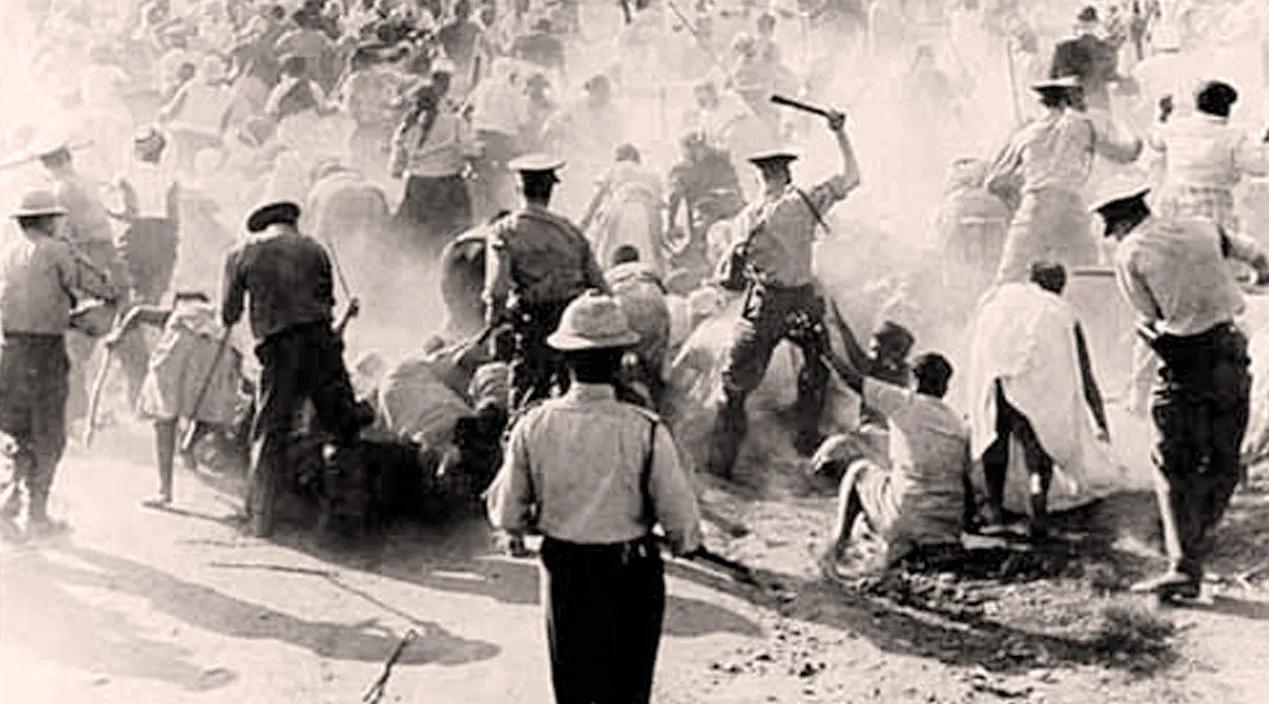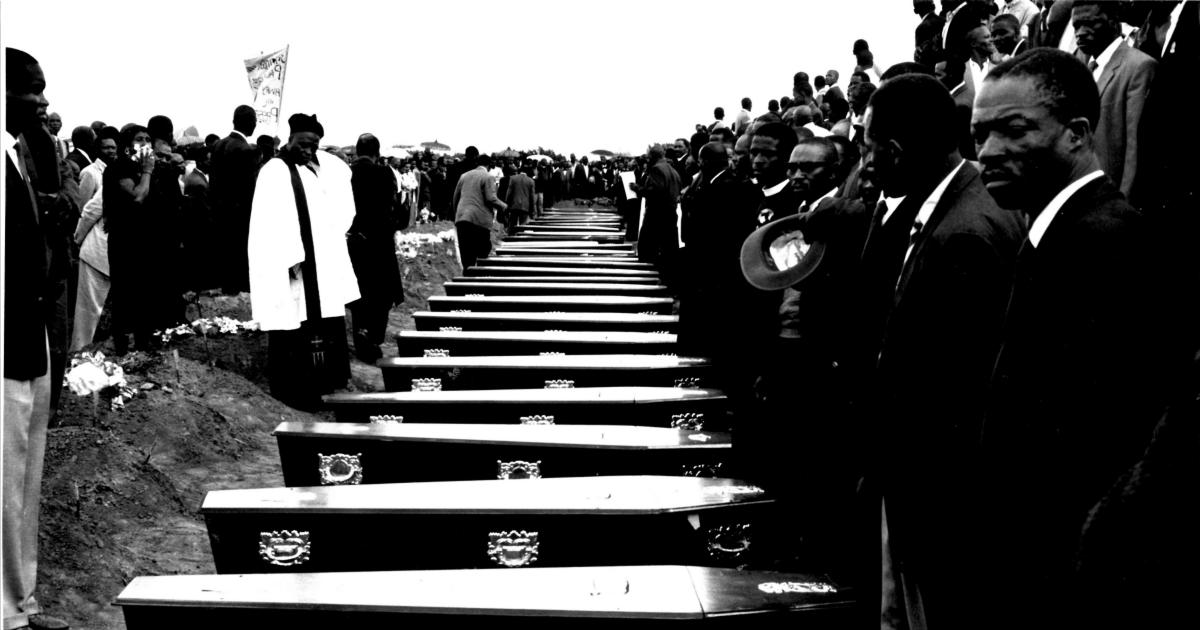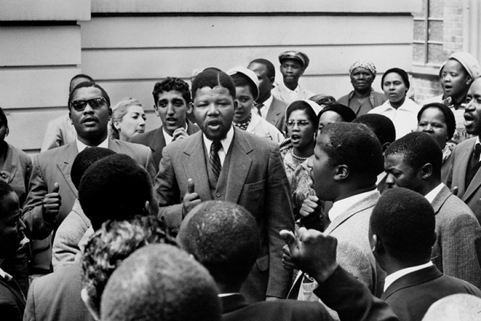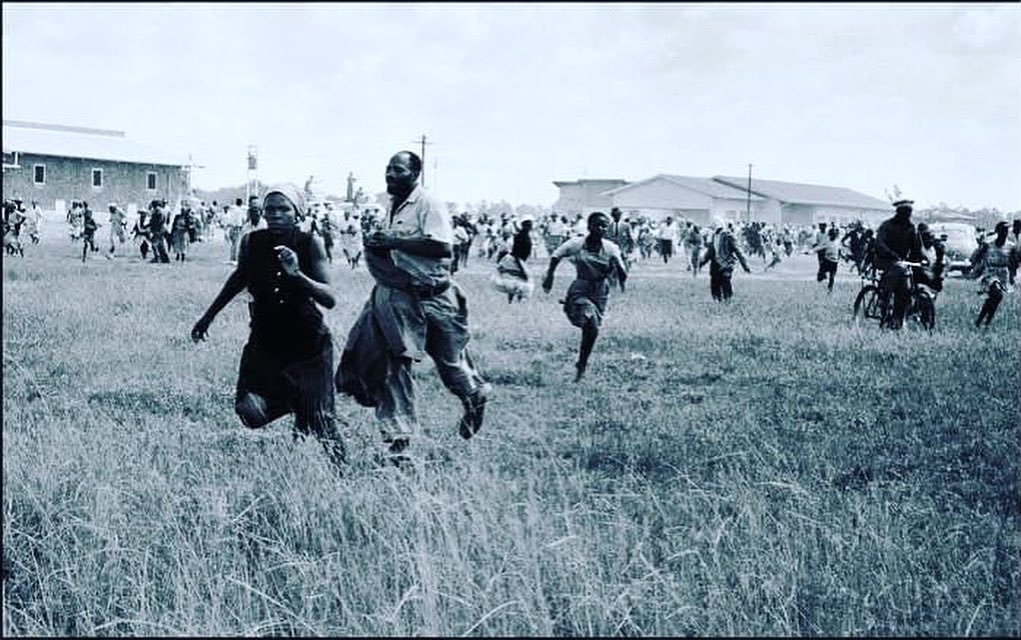Did You Know? The Lasting Impact of Sharpeville Massacre In South Africa
Human Rights Day, observed annually on March 21st in South Africa, serves as a poignant reminder of the nation's turbulent past and the relentless pursuit
of human dignity and equality. This day is intrinsically linked to the tragic events of March 21, 1960, known as the Sharpeville Massacre,
a watershed moment that significantly influenced the trajectory of South Africa's history.
Historical Context: The Sharpeville Massacre
In the mid-20th century, South Africa's apartheid regime enforced the Pass Laws, which mandated that Black South Africans carry
passbooks to control and restrict their movement within urban areas. These laws were a cornerstone of institutionalized racial segregation,
aiming to limit the presence of Black individuals in spaces designated for white populations.

Figure 1: At least 69 people were killed during the Sharpeville Massacre
On March 21, 1960, the Pan Africanist Congress (PAC) organized a peaceful protest against these oppressive laws. Approximately 5,000 to 20,000
demonstrators gathered outside the Sharpeville police station, offering themselves up for arrest for not carrying their passbooks. The atmosphere
was initially peaceful; however, tensions escalated when police reinforcements arrived, and without warning, opened fire on the unarmed crowd. The
official death toll reported 69 individuals killed, including 10 children, and 180 injured, with many shot in the back as they attempted to flee.
Recent research suggests that the actual number of fatalities was at least 91, with more than 238 wounded.

Figure 2: Final remains of those killed during the Massacre awaiting final burial
Aftermath and Significance
The Sharpeville Massacre garnered international condemnation and marked a turning point in the anti-apartheid movement. In response to the
protests, the apartheid government declared a state of emergency. It banned liberation movements such as the African National Congress (ANC)
and the PAC, driving them to operate underground and intensify their resistance efforts. It pushed many activists—including Nelson Mandela—toward
more militant strategies in their fight for freedom.
The massacre also had a profound impact on global human rights advocacy. In 1966, the United Nations designated March 21st as the International
Day for the Elimination of Racial Discrimination, in memory of the lives lost at Sharpeville
and as a call to action against racial prejudice worldwide.

Figure 3: The Sharpeville massacre emboldened anti-apartheid figures like Nelson Mandela toward more militant strategies in their fight for freedom.
Commemoration in Democratic South Africa
With the advent of democracy in 1994, South Africa sought to honor the sacrifices made in the struggle for freedom. Under President Nelson Mandela,
the newly elected government officially declared March 21st as Human Rights Day—a public holiday dedicated to reflecting on the nation's journey
toward equality and the ongoing commitment to upholding human rights for all citizens. In a symbolic gesture, President Mandela signed the country's
progressive Constitution into law on December 10, 1996, in Sharpeville, further embedding the town's significance in the nation's collective memory.
Contemporary Reflections
Today, Human Rights Day serves as a day of remembrance and a call to action. South Africans are encouraged to reflect on the rights
enshrined in their Constitution and to recognize the importance of protecting these rights against any violation.
Retrace History with Us
From March 7–17, 2026, our South Africa Return to the Motherland Tour offers a rare opportunity to explore the historic sites connected to this
pivotal historical moment. Walk through the Apartheid Museum, visit Mandela House, and experience the cultural depth of Soweto,
where the echoes of resistance still resonate.
The South Africa tour is an immersive journey that extends beyond Johannesburg to Cape Town. You’ll take a boat ride to Robben Island,
where Nelson Mandela and other political prisoners were imprisoned for decades. You'll also visit the District Six Museum, to gain
insight into the once-vibrant community of District Six, forcibly removed during apartheid, and reflect on its enduring spirit.
African Connections has been dedicated to reconnecting African Americans to the Motherland for over two decades.
Join us on this tour, see the sights in South Africa, learn more about its culture and history,
experience its beauty, but also pause to commemorate the memory of those who sacrificed their lives in the fight against apartheid.



